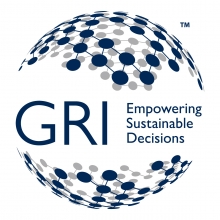Low Visibility Expected to Dissipate: Airports to Earn their Wings by Improving Environmental and Social Impacts Through Greater Transparency
Published 12-18-07
Submitted by Global Reporting Initiative
AMSTERDAM - December 18, 2007 - At the peak of the holiday season airports worldwide will handle approximately five billion passenger trips. Environmental impacts such as waste disposal, water usage, green house gas emissions, and biodiversity, along with social impacts such as job safety and working hours, impacts on local communities and neighborhoods, and customer privacy will escalate due to the high volume traffic. Getting people to and from their respective destinations while keeping social and environmental impacts low is a major challenge, but one that airports like Athens, Frankfurt, and Munich have foremost on their radar screens.
These three European airports have joined together to call for the creation of social and environmental (also known as "sustainability") reporting guidelines for the airports industry. Athens, Frankfurt, and Munich Airports are taking a leadership position in an industry not historically known for its openness on these topics. But stakeholders such as industry associations, journalists, airline companies, local authorities, investors, and passengers are no longer content to stand by - they are demanding greater transparency on sustainability issues that impact their lives and businesses.
According to Matthias Linde, Head of Environmental Strategy for the Munich Airport operating company, Flughafen München GmbH (FMG), establishing a common framework for reporting is important because "we want to transport our passengers in the safest and most secure way possible, while also maintaining high environmental and social standards that we can easily communicate through globally understood and accepted sustainability reporting guidelines ."
The airports have turned to the Global Reporting Initiative (GRI) as the established creator of the most widely used reporting framework for sustainability reporting. Hundreds of companies in all sectors have already used GRI’s main G3 Guidelines as the basis for their reporting. GRI will work with airports and their stakeholders (employees, investors, customers, communities, and others) to create a customized set of reporting indicators specifically for airports to use. The sector indictors will be developed in a consensus seeking process involving interested parties from all corners of the globe.
"GRI is the global language of sustainability" says Pakis Papademetriou, Manager, Corporate Quality at Athens International Airport. "We need to work on adapting these GRI guidelines on the particularities of our business so that we effectively manage, measure and communicate our impact on the natural and social environment. It is not about charity, it is not about boosting the corporate image. It is about applying sound business practices that help ensure our long term success in all aspects of our operation. The best way to strike a balance among stakeholder expectations is to ensure that all the people involved are around the table."
Peter Marx, Vice President Environmental Management at Fraport in Frankfurt says: "As Fraport owns quite a few airports around the world we would like to be able to use sector specific reporting guidelines that are globally applicable. Stakeholder concerns are similar around the world but in some countries emphasis on certain concerns lay differently."
Sustainability reports based on the GRI reporting guidelines enable users to compare company performance, and have been used in other sectors as more than a communications platform but also a management tool for the integration of sustainability strategies into overall business processes. The airport industry becomes the latest segment of the global transportation infrastructure to take up the sustainability challenge behind others such as logistics and automotive which have already worked with GRI to create sector specific reporting guidance.
1. About GRI
GRI's vision is that reporting on economic, environmental, and social performance by all organizations becomes as valuable and comparable as financial reporting. GRI accomplishes its vision by developing, improving, and building capacity around the use of its Sustainability Reporting Framework. A network of tens of thousands of individuals from over 80 countries worldwide from business, civil society, labor, and professional institutions governs the organization and creates the content of the Reporting Framework through a consensus-seeking process. This network is open to those who wish to use the Reporting Framework, access information in GRI-based reports, or contribute to the GRI mission in other ways, both formal and informal. The GRI framework is the most widely used standardized sustainability reporting framework in the world.
2. About GRI Sector Supplements
GRI Sector Supplements capture the unique set of sustainability issues faced by different sectors such as mining, automotive, banking, public agencies and telecom.
Sector specific reporting indicators will be developed by a multi-stakeholder working group of 18-20 individuals in a two year process. The public will twice be offered the opportunity to provide feedback on supplement drafts. The group will be 50% sector and 50% non-sector stakeholders (e.g. labor, social and environmental advocacy, and local community organizations) and the participants will reflect a range of constituencies, expertise, and global geographic regions.
GRI is now seeking expressions of interest from airports, and experts from stakeholder groups associated with this industry who would like to participate in the development process. Please express your interest by contacting us at guidelines@globalreporting.org

Global Reporting Initiative
Global Reporting Initiative
The Global Reporting Initiative's (GRI) vision is that reporting on economic, environmental, and social performance by all organizations becomes as routine and comparable as financial reporting. GRI accomplishes this vision by developing, continually improving, and building capacity around the use of its Sustainability Reporting Framework.
An international network of thousands from business, civil society, labor, and professional institutions create the content of the Reporting Framework in a consensus-seeking process.
More from Global Reporting Initiative

